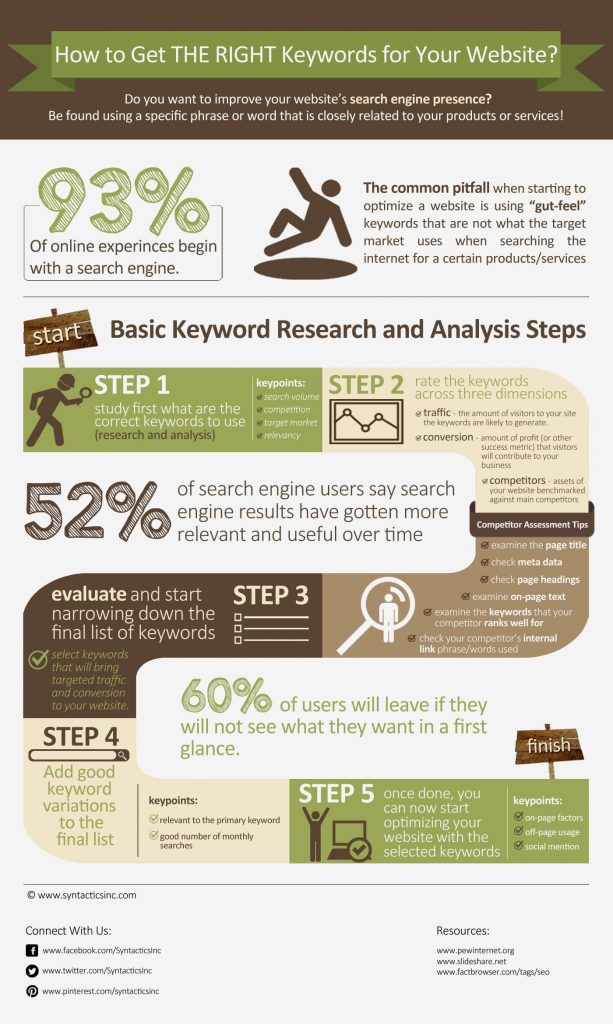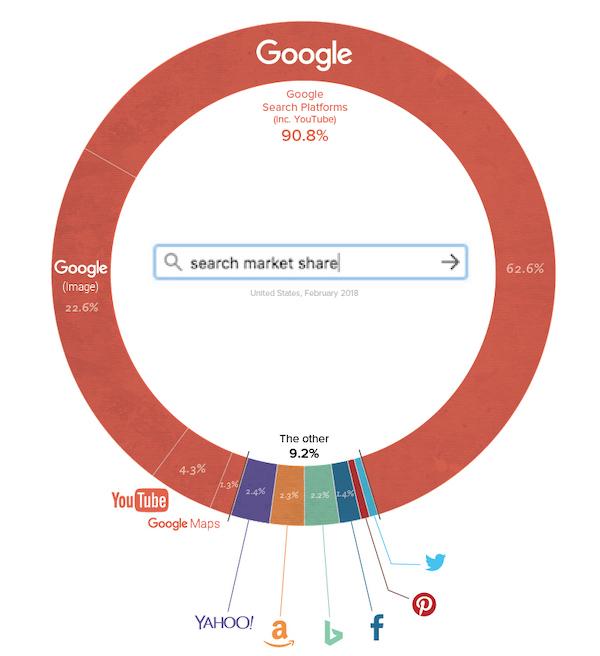Discover the secret to boosting your SEO with related keywords! Learn how to identify and use them effectively in this post.

Image courtesy of via DALL-E 3
Table of Contents
Welcome to the world of blogging! Today, we are going to learn about related keywords and how they can help your blog stand out. Imagine keywords as magical words that guide people to your blog and make your writing more exciting to read. Let’s dive in and discover the secrets of SEO and blogging!
Have you ever wondered how some blogs appear at the top of search engine results? Well, that’s the power of related keywords. These special words and phrases play a crucial role in helping people find exactly what they’re looking for. By using the right keywords in your blog, you can attract more readers and make your content easily discoverable.
So, get ready to unravel the mystery behind SEO and the art of effective blogging with the help of related keywords. Let’s make your blog shine bright like a star in the vast universe of the internet!
What are Keywords?
Keywords are the main words or phrases that describe what your blog is about. Think of them as the key that unlocks the door to your blog for people searching online. They help search engines like Google understand what your blog is all about and show it to the right audience.
Simple Words
Keywords can be as simple as just one word. For example, if your blog is about dogs, then “Dog” could be a keyword that describes your content.
Phrases
Keywords can also be longer phrases that people might search for. For instance, if your blog is about dog training, then “How to Train a Dog” could be a keyword that captures the essence of your content.
Why are Keywords Important?
Keywords play a crucial role in the world of blogging and search engine optimization (SEO). They act as the bridge that connects your blog to the people searching for information on the internet. Let’s dive into why keywords are so important.
Search Engines
Search engines like Google are constantly crawling through the vast sea of websites on the internet to help users find the information they are looking for. Keywords are like signposts that guide these search engines to your blog. When you use the right keywords related to your content, search engines can easily match your blog with relevant search queries.
Reader Help
Keywords not only help search engines understand your content but also assist your readers in quickly grasping what your blog is about. By incorporating relevant keywords in your blog’s titles, headings, and content, you make it easier for your audience to find and engage with your posts. Keywords essentially act as a compass, guiding both search engines and readers to your blog.
Types of Keywords
Keywords come in different shapes and sizes. Understanding the various types of keywords can help you optimize your blog for search engines and attract more readers. Let’s delve into the two main types of keywords: Short-Tail Keywords and Long-Tail Keywords.

Image courtesy of www.syntacticsinc.com via Google Images
Short-Tail Keywords
Short-tail keywords are brief and general terms that describe a broad topic. For example, ‘Cats’ is a short-tail keyword that covers a wide range of content related to cats. These keywords are typically one or two words long and are commonly used by people searching for general information.
Long-Tail Keywords
On the other hand, long-tail keywords are more specific phrases that target a narrower audience. An example of a long-tail keyword is ‘Best Food for Cats’. Long-tail keywords are longer and more detailed, making them ideal for attracting readers who are looking for specific information.
How to Find Related Keywords
When writing a blog, using related keywords is crucial to help people find your content and improve your blog’s visibility. But how do you find the right keywords to use? Let’s explore some methods to identify related keywords that can enhance your blog’s reach.
Online Tools
One effective way to find related keywords is by using online tools like Google Keyword Planner or Ubersuggest. These tools provide valuable insights into popular keywords related to your topic, making it easier for you to optimize your content.
Brainstorming
Another method to find related keywords is through brainstorming. Think of different ways to express the main ideas of your blog post. By coming up with various phrases and terms related to your topic, you can generate a list of potential keywords to incorporate into your content.
How to Use Related Keywords
When writing a blog, it’s important to use related keywords in a strategic way. By incorporating these keywords into your content, you can attract more readers and improve your blog’s visibility on search engines. Here’s how you can effectively use related keywords to enhance your blog.

Image courtesy of fruugo.medium.com via Google Images
In Titles
One of the best places to use related keywords is in your blog post titles. By including relevant keywords in your titles, you make it easier for readers to understand what your blog is about at a glance. Additionally, search engines often prioritize titles when displaying search results, so using keywords here can help boost your blog’s visibility.
In the Content
While it’s important to use keywords in your titles, it’s equally crucial to incorporate them throughout your content. However, be cautious not to overuse keywords, as this can make your writing sound unnatural. Instead, aim to naturally weave your related keywords into the body of your blog post. This will signal to search engines that your content is relevant to the keyword, increasing the chances of your blog ranking higher in search results.
Benefits of Using Related Keywords
Using related keywords in your blog can have several advantages that help improve your writing and attract more readers. Let’s explore the benefits of incorporating related keywords in your content.
More Visitors
When you use related keywords effectively, it makes it easier for people to discover your blog. These keywords act as signposts that guide readers to your content when they are searching for specific topics online. By including relevant keywords, you increase the chances of attracting more visitors to your blog.
Higher Ranking
Search engines like Google analyze the keywords in your content to determine how relevant and informative your blog is. By using related keywords strategically, you can improve your blog’s chances of ranking higher in search results. This means that when people search for topics related to your blog, they are more likely to see your content at the top of the search results page.
Common Mistakes to Avoid
One common mistake to avoid when using keywords is something called keyword stuffing. This happens when you use the same keyword over and over again in your blog post, to the point where it doesn’t sound natural. Remember, search engines don’t like this practice, and it can make your writing seem forced and awkward.

Image courtesy of www.wordstream.com via Google Images
Using Unrelated Keywords
Another mistake to be mindful of is using unrelated keywords in your content. Make sure that the keywords you choose accurately reflect the topic of your blog post. Using keywords that don’t match your content can confuse readers and even hurt your search engine rankings.
Conclusion
Related keywords are like magic words that help people find your blog in the vast sea of the internet. By using these special words and phrases, you can make your writing more interesting and attract more readers.
Summary
In this article, we learned that keywords are the main words or phrases that describe what your blog is about. They can be as simple as one word, like ‘Dog,’ or as complex as a phrase, like ‘How to Train a Dog.’ Keywords are crucial for search engines to help people find your blog and understand what it’s all about.
We discussed different types of keywords, from short-tail to long-tail keywords, and how each can be beneficial for your blog. We also looked at various tools and methods you can use to find related keywords, such as Google Keyword Planner or Ubersuggest.
Furthermore, we explored how to effectively use keywords in your blog, including incorporating them in titles and content without overdoing it. By maintaining a good balance of keywords, you can attract more traffic to your blog and improve its ranking on search engines.
Importance of Keywords in Blogging
Keywords play a pivotal role in helping your blog stand out in the crowded online world. By using related keywords properly, you can connect with your target audience, increase your blog’s visibility, and ultimately achieve greater success in the digital realm.
Remember, when it comes to using related keywords in your blog, quality always trumps quantity. So, make sure to choose your keywords wisely and incorporate them strategically to reap the full benefits of this powerful tool.
Want to turn these SEO insights into real results? Seorocket is an all-in-one AI SEO solution that uses the power of AI to analyze your competition and craft high-ranking content.
Seorocket offers a suite of powerful tools, including a Keyword Researcher to find the most profitable keywords, an AI Writer to generate unique and Google-friendly content, and an Automatic Publisher to schedule and publish your content directly to your website. Plus, you’ll get real-time performance tracking so you can see exactly what’s working and make adjustments as needed.
Stop just reading about SEO – take action with Seorocket and skyrocket your search rankings today. Sign up for a free trial and see the difference Seorocket can make for your website!
Frequently Asked Questions (FAQs)
What are Keywords?
Keywords are the main words or phrases that describe the topic of your blog. They help people find your blog and make your writing more interesting. Keywords can be simple words like ‘Dog’ or phrases like ‘How to Train a Dog’.
Why are Keywords Important?
Keywords are important for blogs because search engines use them to help people find what they are looking for. They also help readers understand what your blog is about and find it more easily.
How can I Find Related Keywords?
To find related keywords, you can use online tools like Google Keyword Planner or Ubersuggest. You can also try brainstorming different ways to say the same thing to discover more keywords.
How do I Use Related Keywords?
You should use related keywords in your blog titles to make them clear and interesting. Spread keywords throughout your content, but avoid overusing them to keep it natural.
What are the Benefits of Using Related Keywords?
Using related keywords can bring more visitors to your blog and help it rank higher on search engines. Keywords help your blog appear at the top in search results, bringing more traffic.
What Common Mistakes should I Avoid when Using Keywords?
Avoid keyword stuffing, which is using keywords excessively, as it can harm your blog. Also, refrain from using unrelated keywords that don’t match your blog content, as this can confuse readers and affect your ranking.







